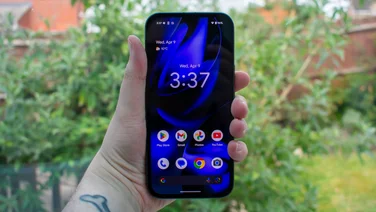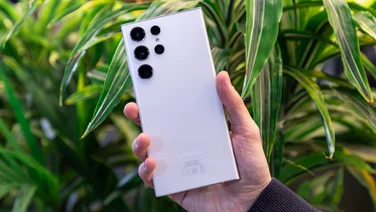To help us provide you with free impartial advice, we may earn a commission if you buy through links on our site. Learn more

Nokia is reportedly planning to get back into the mobile phone business, despite having sold its handset division to Microsoft. That 2013 deal precludes Nokia from selling phones under its own brand until next year, but the company is already plotting a return as soon as the embargo lifts, according to Re/code.
Nokia has been nibbling away at the mobile market over the past couple of years, despite its non-compete agreement with Microsoft. The company has produced a homescreen, dubbed ZLauncher, for Android devices – providing a firm hint of the company’s thinking when it comes to the operating system it might use for future Nokia handsets. That homescreen also appeared on the Nokia N1, an Android tablet that the company unveiled at Mobile World Congress earlier this year.
If Nokia did re-enter the mobile business, it would almost certainly have to rely on a third-party manufacturer to physically build the handsets. Nokia disposed of its manufacturing plants and supply chain as part of the £4.5 billion deal with Microsoft in 2013.
Microsoft has seemingly been preparing for Nokia’s return, too. It has gradually phased out the Nokia brand name from its handsets, with the company’s smartphones now using only the Lumia brand. Microsoft’s fortunes in the mobile market haven’t really improved since the Nokia acquisition, however. Windows Phone’s share of the mobile market declined to only 2.8% in 2014, down from 3% the year before. Microsoft is midway through yet another major revamp of its phone operating system – in the form of Windows 10 – which many regard as the last roll of the dice for Microsoft’s mobile business.
It’s not clear what types of devices Nokia plans to produce on its return to the mobile business. Nokia was traditionally strong in both consumer and business handsets, but was painfully slow to react to the advent of the touchscreen iPhone. The company persevered with its outdated Symbian operating system, which was geared towards keyboard-based devices rather than touchscreens, until it was far too late.
The company was already making heavy losses when it appointed former Microsoft executive, Stephen Elop, as its CEO in 2010. Elop wrote an infamous memo, claiming the company was standing on a “burning platform”, before deciding to differentiate itself by ditching Symbian and adopting Windows Phone for its smartphones. Nokia remained one of the few manufacturers still using Windows Phone when Microsoft bought the handset division in 2013, partly through fears that the company would turn its back on Windows and adopt Android.




